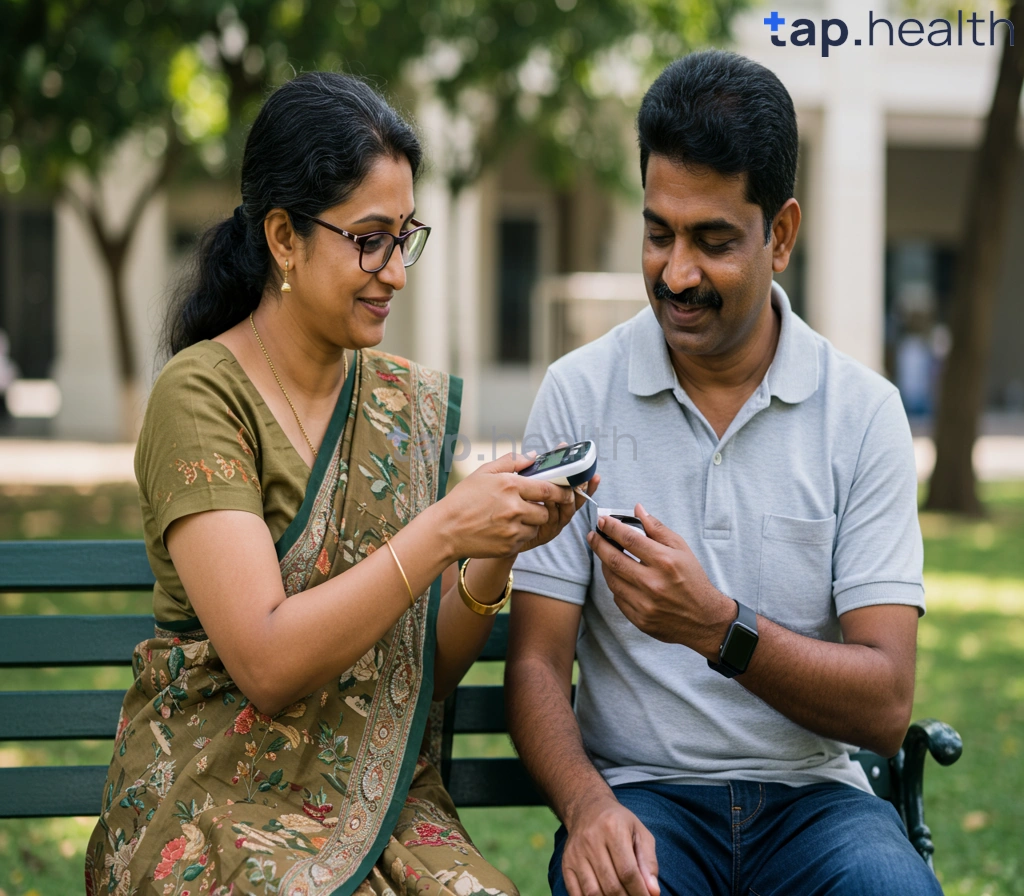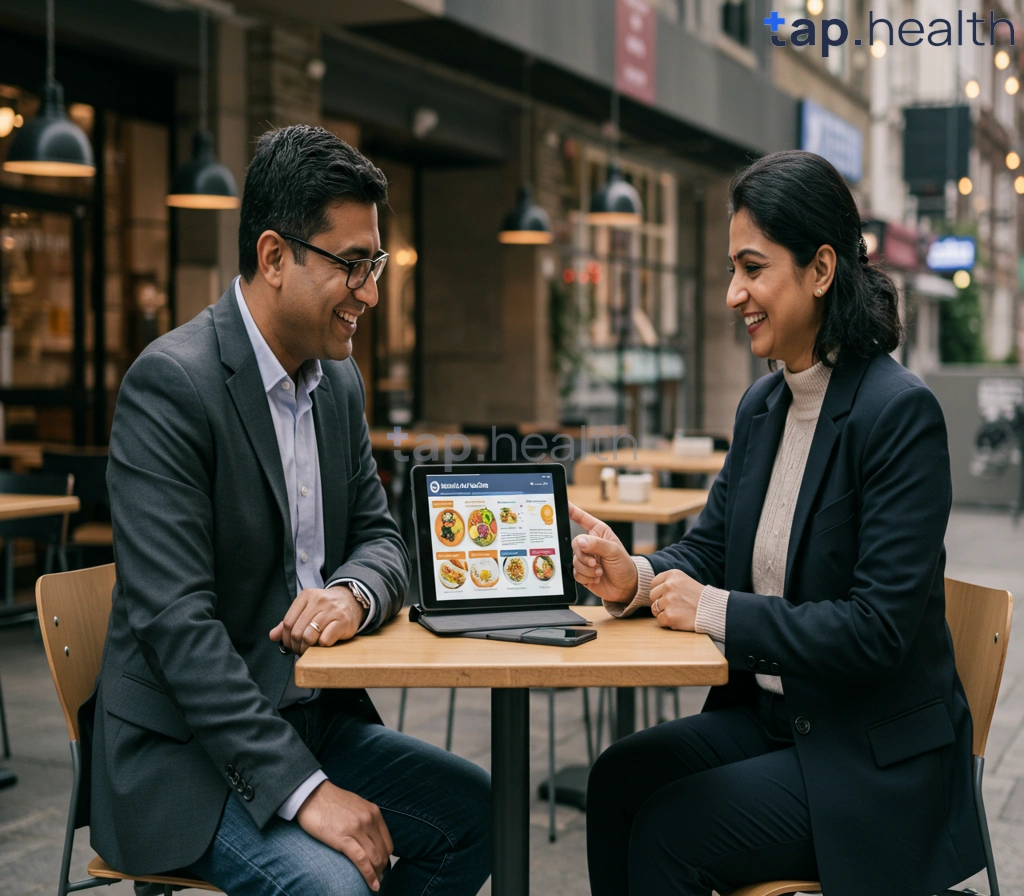Table of Contents
- Understanding Diabetes: A Guide for Caregivers
- Strengthening Your Bond: Supporting a Diabetic Loved One
- Meal Planning for Diabetics: Recipes & Tips for Support
- Managing Diabetes Together: Practical Strategies and Resources
- Is Your Support Effective? Assessing Your Care for a Diabetic
- Frequently Asked Questions
- References
Navigating the challenges of diabetes can be tough, but it doesn’t have to strain your relationships. In fact, Supporting a Loved One with Diabetes: Strengthening Your Bond can be a powerful way to deepen your connection and build resilience together. This blog is dedicated to providing practical advice and emotional support for caregivers and loved ones of individuals living with diabetes. We’ll explore strategies for effective communication, managing daily routines, and fostering a supportive environment that promotes both physical and emotional well-being. Learn how to become a true partner in their journey, transforming a challenging situation into an opportunity for growth and closer connection. Let’s embark on this journey together!
Understanding Diabetes: A Guide for Caregivers
Supporting a loved one with diabetes requires understanding the condition and its impact. A significant portion of the global population lives with diabetes; according to the International Diabetes Federation (IDF), 61% of those diagnosed are aged between 20 and 64, while 39% are 65 and older. This wide age range highlights the diverse challenges faced by caregivers across different demographics, particularly in Indian and tropical countries where access to healthcare and resources may vary.
Understanding the Challenges in Tropical Climates
High temperatures and humidity prevalent in many Indian and tropical regions can exacerbate diabetes symptoms. Dehydration is a significant concern, increasing the risk of complications. Caregivers need to be particularly vigilant about hydration, encouraging frequent water intake, especially during hotter months. Furthermore, access to appropriate healthcare, including regular check-ups and medication, can be more challenging in certain areas, requiring proactive planning and support.
Practical Tips for Caregivers
Educate yourself: Learning about diabetes management is crucial. Understand the different types of diabetes, their symptoms, and potential complications. This knowledge empowers you to better support your loved one. Promote healthy eating habits: Encourage a balanced diet rich in fresh fruits, vegetables, and whole grains, appropriate for the regional climate and dietary preferences. Encourage regular exercise: Even short walks can make a difference. Tailor the exercise regime to your loved one’s physical capabilities and the local weather conditions. Monitor blood sugar levels: Regular monitoring helps to detect and manage fluctuations effectively. Finally, seek support from local diabetes organizations and healthcare professionals, as they can offer invaluable guidance and resources specific to your region. This collaborative approach is key to ensuring the best possible care for your loved one. As your loved one ages, you may find the challenges change, and understanding how to Manage Diabetes as You Age: Challenges and Solutions becomes increasingly important. If travel is on the horizon, remember to check out our tips on Traveling with Diabetes: Essential Tips for a Safe & Healthy Journey.
Strengthening Your Bond: Supporting a Diabetic Loved One
Living with diabetes, particularly in hot and humid climates common to many Indian and tropical countries, presents unique challenges. Understanding these challenges is crucial to effectively supporting a loved one. Over 80% of Type 2 diabetics experience insulin resistance as a key underlying factor, impacting their ability to regulate blood sugar. This makes consistent support even more vital.
Understanding the Challenges
The heat and humidity can exacerbate diabetes symptoms, leading to dehydration and increased blood sugar levels. Access to healthcare and resources may also be limited in some regions. Providing emotional support is just as important as practical help. Regularly checking in, offering encouragement, and creating a supportive environment can significantly improve their quality of life. Managing stress is also crucial, and you might find helpful tips in our article on Effective Stress Management Tips for Better Diabetes Control.
Practical Steps to Support Your Loved One
Encourage healthy eating habits with locally sourced, fresh fruits and vegetables. Incorporate traditional Indian spices known for their health benefits, such as turmeric and cinnamon, into their diet. Remember, managing diabetes is a journey, not a race. Celebrate small victories and offer understanding during setbacks. Regular exercise, adapted to the climate, is essential. Early morning or evening walks, perhaps after the heat of the day has subsided, can be beneficial. Boosting their immunity can also play a significant role, and our article on Boosting Immunity While Managing Diabetes offers valuable insights.
Seeking Regional Support
Many Indian and tropical countries have dedicated diabetes support groups and organizations. Connecting with these resources can provide invaluable information, peer support, and access to local healthcare professionals. Don’t hesitate to seek help; strengthening your bond also means seeking assistance when needed. Your unwavering support can make a world of difference in their journey with diabetes.
Meal Planning for Diabetics: Recipes & Tips for Support
Supporting a loved one with diabetes requires understanding their dietary needs. A crucial aspect is meal planning, which can significantly impact blood sugar control and overall well-being. Remember, individual needs vary, but a general guideline suggests aiming for around 45–60 grams of carbohydrates per meal for many people with diabetes. This is just a starting point; always consult with a doctor or registered dietitian to determine the best carbohydrate intake for your loved one.
Adapting Recipes for Tropical Climates
In Indian and tropical countries, fresh, seasonal produce abounds. Utilize this! Focus on incorporating plenty of leafy greens, like spinach and fenugreek, which are rich in nutrients and fiber. Incorporate lentils (dal) and other legumes, excellent sources of protein and fiber that help regulate blood sugar levels. Spice up your meals with turmeric, ginger, and cinnamon—ingredients known for their anti-inflammatory properties and potential benefits for managing diabetes.
Actionable Tips for Meal Planning
Prioritize whole grains over refined carbohydrates. Swap white rice for brown rice or quinoa. Choose fruits lower on the glycemic index, such as berries and apples, over high-glycemic fruits like mangoes. Incorporate healthy fats like those found in avocados, nuts, and seeds to promote satiety and help manage blood sugar fluctuations. Plan your meals and snacks in advance to avoid impulsive choices. This can greatly help in maintaining a consistent carbohydrate intake. Finally, experiment with flavorful and culturally relevant recipes that your loved one will enjoy. This ensures adherence to the meal plan and strengthens your bond through shared culinary experiences. For more structured plans, you might find a Diet Chart for Diabetic Patients to Control Diabetes helpful.
Finding Support in Your Region
Connecting with local diabetes support groups or registered dietitians specializing in South Asian or tropical diets can provide invaluable personalized guidance and recipes tailored to your specific region and cultural preferences. This collaborative approach is key to successful diabetes management and strengthens your support network. If you’re looking to prevent diabetes, check out this resource on Pre Diabetic Diet Chart: Simple Plans to Prevent Diabetes.
Managing Diabetes Together: Practical Strategies and Resources
Supporting a loved one with diabetes requires understanding, patience, and a collaborative approach. The global burden of diabetes is staggering, with projections indicating a rise from 9.8% prevalence in 2021 to 11.2% in 2045, impacting millions across the globe, including significantly in India and tropical countries. This necessitates practical strategies tailored to specific regional contexts.
Understanding the Challenges in Tropical Climates
High temperatures and humidity prevalent in many Indian and tropical regions can exacerbate diabetes symptoms. Dehydration is a significant concern, potentially leading to increased blood sugar levels. Regular hydration, including electrolyte drinks, becomes crucial, especially during strenuous activity. Access to consistent healthcare and affordable medication can be a challenge in certain regions; therefore, proactive planning and strong support networks are vital.
Practical Strategies for Support
Meal planning adapted to local dietary preferences is key. Many traditional Indian and tropical diets, rich in fruits, vegetables, and whole grains, can be modified to support blood sugar management. Regular exercise, even short walks, is important, but needs to consider the intense heat. Early morning or evening workouts might be preferable. Open communication is crucial. Encourage your loved one to actively participate in their care, fostering independence and a sense of control. For more specific tips, check out our guide on 10 Proven Tips for Effective Diabetes Management.
Resources and Support Networks
Connecting with local diabetes support groups and healthcare professionals is invaluable. Many organizations offer educational programs and resources specific to the needs of individuals in these regions. Learning about available government schemes and initiatives can also provide much-needed assistance for managing diabetes costs and treatment access. Remember that strong emotional support is just as vital as practical assistance in managing this chronic condition. Together, you can navigate the journey effectively. Learning to effectively manage diabetes can significantly improve quality of life. For a simple guide, consider reading 10 Proven Tips to Effectively Manage Diabetes | Simple Guide.
Is Your Support Effective? Assessing Your Care for a Diabetic
Supporting a loved one with diabetes requires understanding and consistent effort. Is your support truly effective? A significant challenge, especially prevalent in hot and humid climates like those across India and other tropical countries, is the increased risk of complications. For instance, diabetic neuropathy, affecting 30-50% of patients, can cause debilitating pain and significantly reduce mobility, impacting their daily life and your support efforts.
Understanding the Challenges:
Consider the unique challenges faced in warmer regions. High temperatures can exacerbate diabetic symptoms, leading to dehydration and increased blood sugar levels. Access to proper healthcare and specialized diabetic care might be limited in some areas. Are you actively monitoring their hydration levels, especially during hotter months? Are you familiar with the local resources available for diabetes management, including support groups and specialized clinics?
Effective Support Strategies:
Effective support goes beyond providing medication. It involves active participation in managing their condition. This includes assisting with dietary adjustments, promoting regular exercise (considering the climate), and ensuring timely medication adherence. Open communication is crucial; understanding their pain levels, particularly if they suffer from diabetic neuropathy, is paramount. For further advice on dietary choices, you might find our blog on Safe and Effective Dietary Supplements for Diabetes Care helpful.
Taking Action:
Strengthen your bond by actively engaging in their diabetes management. Seek advice from local healthcare professionals and connect with support groups tailored to the specific needs of diabetic patients in your region. Remember, your understanding and proactive support can significantly improve their quality of life and strengthen your relationship. Consider visiting a local diabetes specialist for personalized guidance. Managing cholesterol is another key aspect of diabetes care, and you can learn more about that in our article on How to Manage Cholesterol Levels with Diabetes?
Frequently Asked Questions on Diabetes Support | Strengthening Bonds with Loved Ones
Q1. How can I best support a loved one with diabetes, especially in a hot climate?
Supporting a loved one with diabetes involves education on proper management, promoting healthy eating with locally sourced foods like whole grains, fruits, vegetables, and spices, encouraging suitable exercise, close blood sugar monitoring, and utilizing available healthcare resources and local support organizations. Emotional support and open communication are also key.
Q2. What are the unique challenges of managing diabetes in hot and humid climates?
Hot and humid weather increases the risk of dehydration, which can worsen diabetes. Access to healthcare may also be limited in some areas. The heat itself can exacerbate existing symptoms.
Q3. What kind of diet is recommended for someone with diabetes in hot climates?
Focus on a diet rich in whole grains, fruits, vegetables, and spices, which are often readily available in tropical regions. These foods offer essential nutrients and help regulate blood sugar levels.
Q4. How important is exercise, and what type is recommended for someone with diabetes in hot weather?
Regular exercise is crucial for managing diabetes. However, in hot climates, it’s vital to choose climate-appropriate activities, avoiding strenuous exercise during the hottest parts of the day and staying well-hydrated.
Q5. What resources are available to help caregivers support their loved ones with diabetes?
Many local organizations and healthcare professionals can provide support. Actively seek out these resources in your community for guidance and assistance in managing the condition.
References
- A Practical Guide to Integrated Type 2 Diabetes Care: https://www.hse.ie/eng/services/list/2/primarycare/east-coast-diabetes-service/management-of-type-2-diabetes/diabetes-and-pregnancy/icgp-guide-to-integrated-type-2.pdf
- Children with Diabetes : A resourse guide for families and school. : https://www.health.ny.gov/publications/0944.pdf




